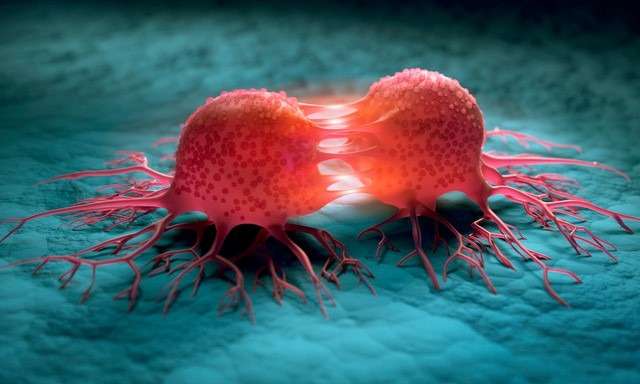A wide individual patient-level meta-analysis of randomized trials comparing taxane regimens with versus without anthracycline, recently published on The Lancet, confirms that for women with early high-risk breast cancer combination of anthracycline and taxane chemotherapy provides larger benefit than either drug alone.
This collaborative meta-analysis includes individual patient-level data from more than 100.000 women in 86 trials of anthracycline and taxane-based chemotherapy. Despite regimens containing anthracycline and taxane are considered to be the most effective adjuvant chemotherapy for early-stage breast cancer, reducing the annual risk of death by at least a third compared with no chemotherapy, uncertainty persists about optimal regimen. Indeed, the benefits of chemotherapy regimens must outweigh any short- and long-term side effects. Risks of acute myeloid leukemia and heart failure were reported in initial studies. These were essentially due to the concomitant administration of cyclophosphamide, known for its leukemogenic potential, and concerns about the short- and long-term toxicity of anthracyclines, such as cardiovascular disease and leukemia. Consequently, there is still today a widespread trend towards cut down treatment, with implementation of anthracycline-free regimens in clinical practice, for example four or six cycles of docetaxel and cyclophosphamide, despite evidence of conflicting results from individual randomized trials.
This meta-analysis helps dispel clinician and patient concerns by demonstrating that anthracycline and taxane regimens with optimal dose and higher dose-intensity schedules were more effective. The proportional reduction in relapses with taxane plus anthracycline-based chemotherapy was similar regardless of hormone receptor status, age, lymph node status, size or grade of the tumor.
This meta-analysis also shows that treating 1,000 women with anthracyclines and taxanes would cause one or two cases of acute myeloid leukemia, significantly fewer than shown by previous studies. “The large number of available studies makes this the meta-analysis to reliably demonstrate that anthracycline and taxanes significantly reduce breast cancer recurrence and mortality compared with regimens with taxanes without anthracycline,” write the authors. “This challenges the current trend in clinical practice towards anthracycline-free chemotherapy, especially shorter regimens, such as four cycles of docetaxel-cyclophosphamide: this and previous meta-analyses from the Early Breast Cancer Trialists’ Collaborative Group provide a basis of reliable evidence to aid in individual treatment decisions, for clinical guidelines and in the design of future clinical trials,” conclude the authors.

A wide individual patient-level meta-analysis of randomized trials comparing taxane regimens with versus without anthracycline, recently published on The Lancet, confirms that for women with early high-risk breast cancer combination of anthracycline and taxane chemotherapy provides larger benefit than either drug alone.
This collaborative meta-analysis includes individual patient-level data from more than 100.000 women in 86 trials of anthracycline and taxane-based chemotherapy. Despite regimens containing anthracycline and taxane are considered to be the most effective adjuvant chemotherapy for early-stage breast cancer, reducing the annual risk of death by at least a third compared with no chemotherapy, uncertainty persists about optimal regimen. Indeed, the benefits of chemotherapy regimens must outweigh any short- and long-term side effects. Risks of acute myeloid leukemia and heart failure were reported in initial studies. These were essentially due to the concomitant administration of cyclophosphamide, known for its leukemogenic potential, and concerns about the short- and long-term toxicity of anthracyclines, such as cardiovascular disease and leukemia. Consequently, there is still today a widespread trend towards cut down treatment, with implementation of anthracycline-free regimens in clinical practice, for example four or six cycles of docetaxel and cyclophosphamide, despite evidence of conflicting results from individual randomized trials.
This meta-analysis helps dispel clinician and patient concerns by demonstrating that anthracycline and taxane regimens with optimal dose and higher dose-intensity schedules were more effective. The proportional reduction in relapses with taxane plus anthracycline-based chemotherapy was similar regardless of hormone receptor status, age, lymph node status, size or grade of the tumor.
This meta-analysis also shows that treating 1,000 women with anthracyclines and taxanes would cause one or two cases of acute myeloid leukemia, significantly fewer than shown by previous studies. “The large number of available studies makes this the meta-analysis to reliably demonstrate that anthracycline and taxanes significantly reduce breast cancer recurrence and mortality compared with regimens with taxanes without anthracycline,” write the authors. “This challenges the current trend in clinical practice towards anthracycline-free chemotherapy, especially shorter regimens, such as four cycles of docetaxel-cyclophosphamide: this and previous meta-analyses from the Early Breast Cancer Trialists’ Collaborative Group provide a basis of reliable evidence to aid in individual treatment decisions, for clinical guidelines and in the design of future clinical trials,” conclude the authors.